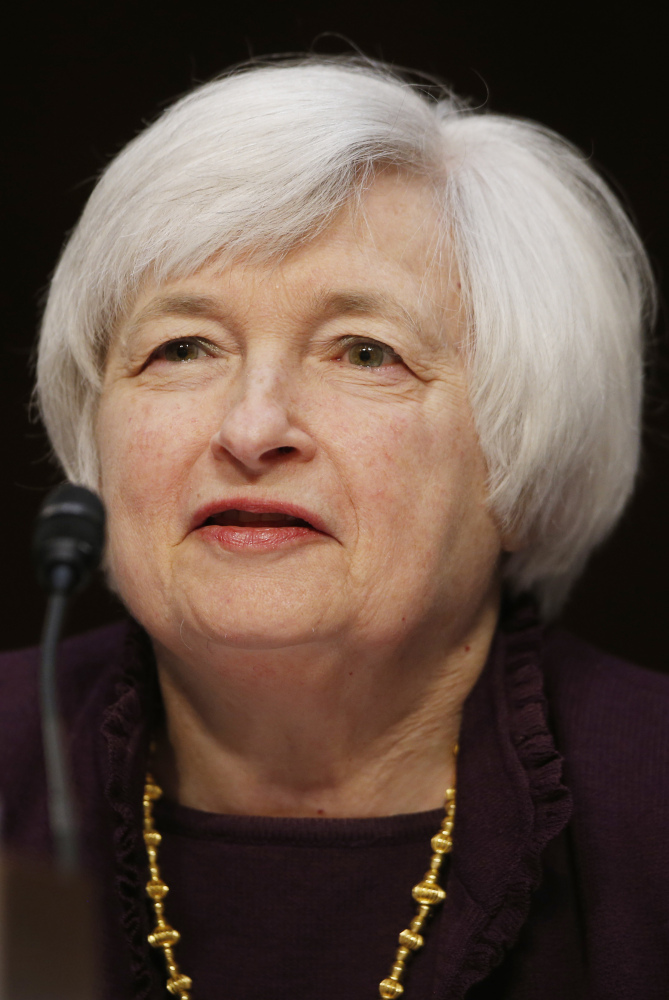WASHINGTON — Federal Reserve Chair Janet L. Yellen painted a mostly upbeat picture of the economy emerging from a weather-induced winter slowdown but gave no hints of when the central bank might start raising rock-bottom interest rates.
In Capitol Hill testimony Wednesday, Yellen confirmed that the Fed is on target to end its controversial bond-buying stimulus program this fall and defended the Fed’s easy-money policies against criticism that they’ve helped Wall Street at the expense of average Americans.
Still, Yellen warned that the jobs situation was “far from satisfactory” and that a recent slowdown in the housing market was worrisome.
“While we have seen substantial improvements in labor market conditions and the overall economy since the financial crisis and severe recession, we recognize that more must be accomplished,” Yellen told the congressional Joint Economic Committee.
But she sounded no alarms about the anemic economic growth in the initial three months of the year.
Yellen attributed the weakness largely to temporary factors, such as the extreme weather that hit much of the country, and said the recovery should pick up through the rest of 2014.
According to Yellen, “With the harsh winter behind us, many recent indicators suggest that a rebound in spending and production is already under way, putting the overall economy on track for solid growth in the current quarter.”
The Labor Department said Friday that payrolls grew by a surprisingly strong 288,000 jobs in April and the unemployment rate dropped to 6.3 percent, the lowest level since September 2008.
The job growth was encouraging after the government reported last week that the economy barely grew in the first quarter, expanding at a 0.1 percent annual pace.
Last week, Fed policymakers continued to reduce the central bank’s bond-buying program, which was designed to push down mortgage and other long-term interest rates.
The reduction, to $45 billion a month, puts the Fed on pace to end the purchases by year’s end.
Attention has shifted to when the Fed might start to raise short-term interest rates, which it has held near zero since late 2008.
Send questions/comments to the editors.



Success. Please wait for the page to reload. If the page does not reload within 5 seconds, please refresh the page.
Enter your email and password to access comments.
Hi, to comment on stories you must . This profile is in addition to your subscription and website login.
Already have a commenting profile? .
Invalid username/password.
Please check your email to confirm and complete your registration.
Only subscribers are eligible to post comments. Please subscribe or login first for digital access. Here’s why.
Use the form below to reset your password. When you've submitted your account email, we will send an email with a reset code.